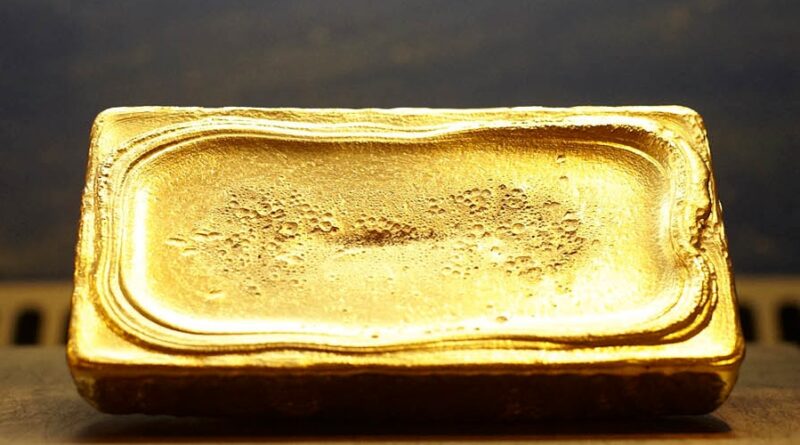UAE attachés accused in international gold smuggling syndicate
The United Arab Emirates is a key hub for gold trading linked to money laundering, organized crime and terrorist financing. The authorities have promised to clean up their act, but a court case in India suggests there is still a long way to go.
As one of the world’s major trading hubs, the UAE was in 2019 the fifth-biggest importer and fourth-biggest exporter of gold globally. Reuters reported in 2019, much of this gold is smuggled from West Africa and produced by artisanal and small-scale gold mining, a trade that funds armed conflict, costs producing countries in lost tax revenue and has significant consequences on public health and the environment.
During the COVID-19 pandemic, international demand for gold has surged. In 2020, the Financial Action Task Force published a report that stated: “The UAE’s understanding of the risks it faces from money laundering, terrorist financing and funding of weapons of mass destruction is still emerging … The risks are significant, and result from the UAE’s extensive financial, economic, corporate and trade activities, including as a global leader in oil, diamond and gold exports.”
A UN report in 2018 stated, “In every state [in the Economic Community of West African States region], it was reported that most of the gold exported from the region is destined for Dubai. Most of this gold is thought to be exported by plane; gold is thought to be smuggled, for the most part, out of the region through airports.”
The UAE authorities have been facing increasingly strenuous calls to clean up their bullion trade. In 2019, an International Crisis Group report called on them to ensure income from the gold trade is not used to finance terrorism.
In December 2020, the UK Home Office national risk assesment stated: “These deficiencies expose the UAE, and other countries, to abuse by international controller networks which continue to launder the proceeds of crime to and from countries including the UK.
These criminal networks exploit features of the UAE’s laws and systems, in order to move cash and gold easily into and out of the country, as well as engage in money laundering through the UAE property market, international trade, and newer areas such as crypto assets.”
Last year, the London Bullion Market Association (LBMA), the world’s most influential gold market authority, threatened to stop UAE bullion from entering the mainstream market if it failed to meet regulatory standards.
Since gold was the UAE’s largest export after oil in 2019, a trend that in a post-oil age looks only set to grow, the authorities responded by quickly pledging support for an LBMA initiative in December 2020 to crack down on illegal gold trading and improve regulation around issues like money laundering and unethical sourcing.
GOLD DISCOVERED IN INDIA
But recent developments in a court case in India are once again calling into question the UAE’s commitment to clean up its bullion trade. In June 2020, Indian customs discovered over 30 kilograms of gold worth — at the official market rate — more than $2.1 million.
The gold was found in diplomatic baggage addressed to the UAE Consulate-General Office in Thiruvananthapuram, the capital of the southern Indian state of Kerala; it had been listed as bathroom fittings, noodles, biscuits and dates.
The subsequent investigation has opened a Pandora’s Box of organized crime that has already led to around 30 arrests, including a host of alleged facilitators, financiers, gold traders, former employees of the UAE Consulate and a principal secretary to the Kerala chief minister.
The National Investigation Agency (NIA), which is India’s counterterrorism task force, and at least four other central government agencies are now conducting separate but related investigations into a US dollar smuggling operation from Thiruvananthapuram airport to Cairo via Muscat.
The operation was allegedly run by the former UAE Consulate Finance Department head, Khaled Ali Shoukry, an Egyptian national. The other investigations involve corrupt schemes related to various local government projects in Kerala, including the Wadakanchery LIFE Mission housing project, which is funded by the UAE Red Crescent, and the Kerala Infrastructure Investment Fund Board.
This is the first time UAE diplomats have ever been publicly implicated in gold smuggling. Emirati authorities have promised to cooperate, claiming they were duped by their Indian and Egyptian staff.
But the former UAE consul general, Jamal Hussain al-Zaab, and Admin Attaché Rashed Khamis Ali Musaiqri both fled home last year before they could be questioned and are now claiming diplomatic immunity.
However, a steady stream of information has been coming to light through disclosures in Kerala High Court. The NIA said 150 kilograms of gold was smuggled through Thiruvananthapuram airport in the last six months in a similar fashion, and most of the money was used for funding terrorism.
According to sources quoted in Indian media, over 20 such consignments allegedly came to India from Dubai since September 2019, around 19 of which were addressed to the UAE consul general and one was in the name of the admin attaché. At the same time, senior Indian politicians linked to the case were enjoying five-star trips to the UAE.
THE CLAIMS
In March, the political temperature rose significantly when two of the key accused, Indian nationals employed in the consular office, testified that the UAE consul general was personally involved in the criminal enterprise.
Swapna Suresh, formerly the consul general’s Arabic-language translator, and another employee, Sarith P.S., stated in an affidavit that the consul general, as well as several senior Indian politicians, were aware of the gold and dollar smuggling activities and were coordinating illegal financial dealings under the cover of various projects run by the state government.
“Swapna and Sarith [the accused] stated that it was a common practice among foreign nationals, including diplomats working at UAE Consulate, to carry currency notes above permitted limits. We suspect that they were engaged in hawala activities to fund smuggling of gold from Dubai to Kerala.
Similarly, they also smuggled goods from abroad using diplomatic privileges and sold them in the Kerala market. Many Indian employees of the consulate were aware of such activities and they will be questioned soon” an Indian customs official said.
The UAE consul general, Swapna alledged, split a 3-million UAE dirham ($817,000) commission for the Wadakkanchery project three ways between himself, Shoukry and her. Another accused claimed the consul general and Shoukry were carrying out illegal gold smuggling activities while working in the UAE Mission in Vietnam before coming to Thiruvananthapuram.
The Indian Ministry of External Affairs recently issued permission to arraign the former consul general and admin attaché who served at the UAE Consulate in Thiruvananthapuram.
“Both of them assisted Swapna Suresh and Sarith PS to clear the baggage containing gold that arrived from the UAE. They also were receiving remuneration as per the quantity of gold smuggling on 21 occasions. They are equally involved as other accused persons,” an Indian customs official said.
This article is based on a Panama Papers Report.




